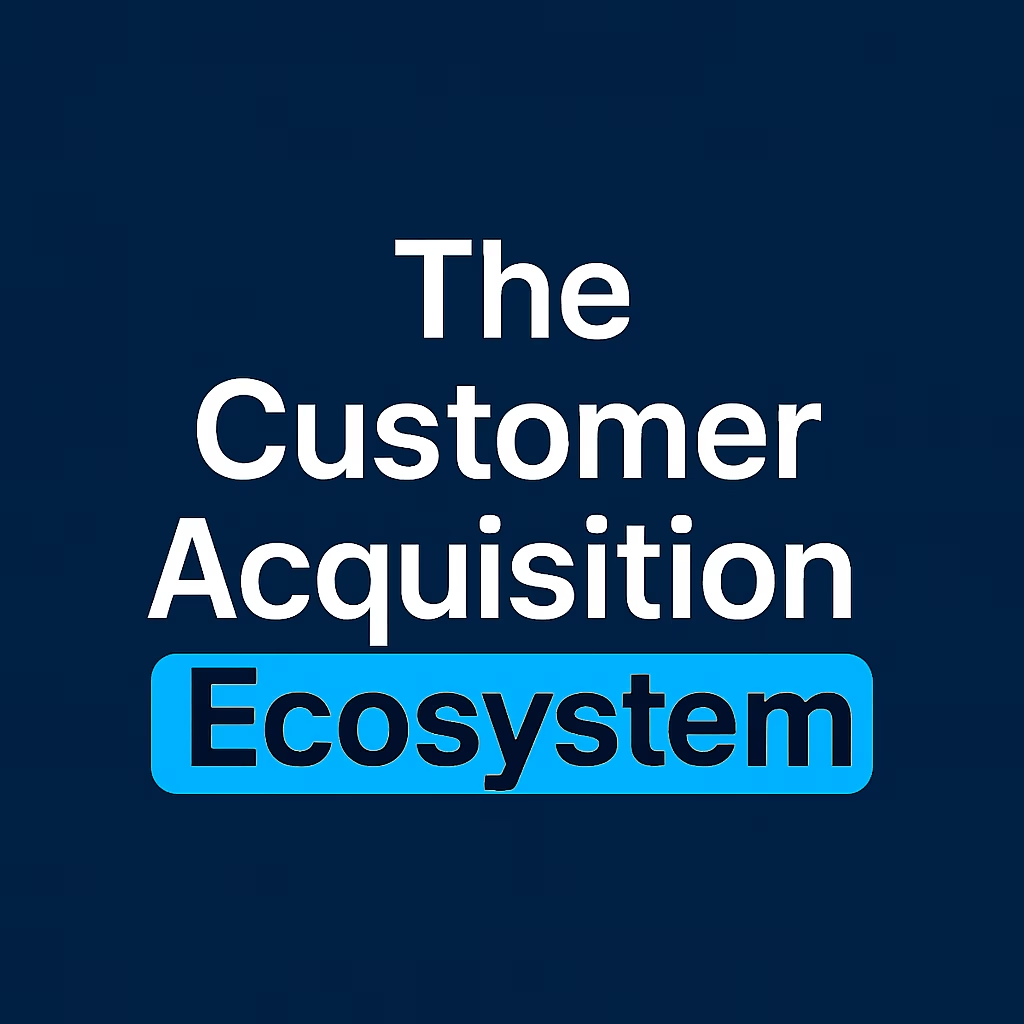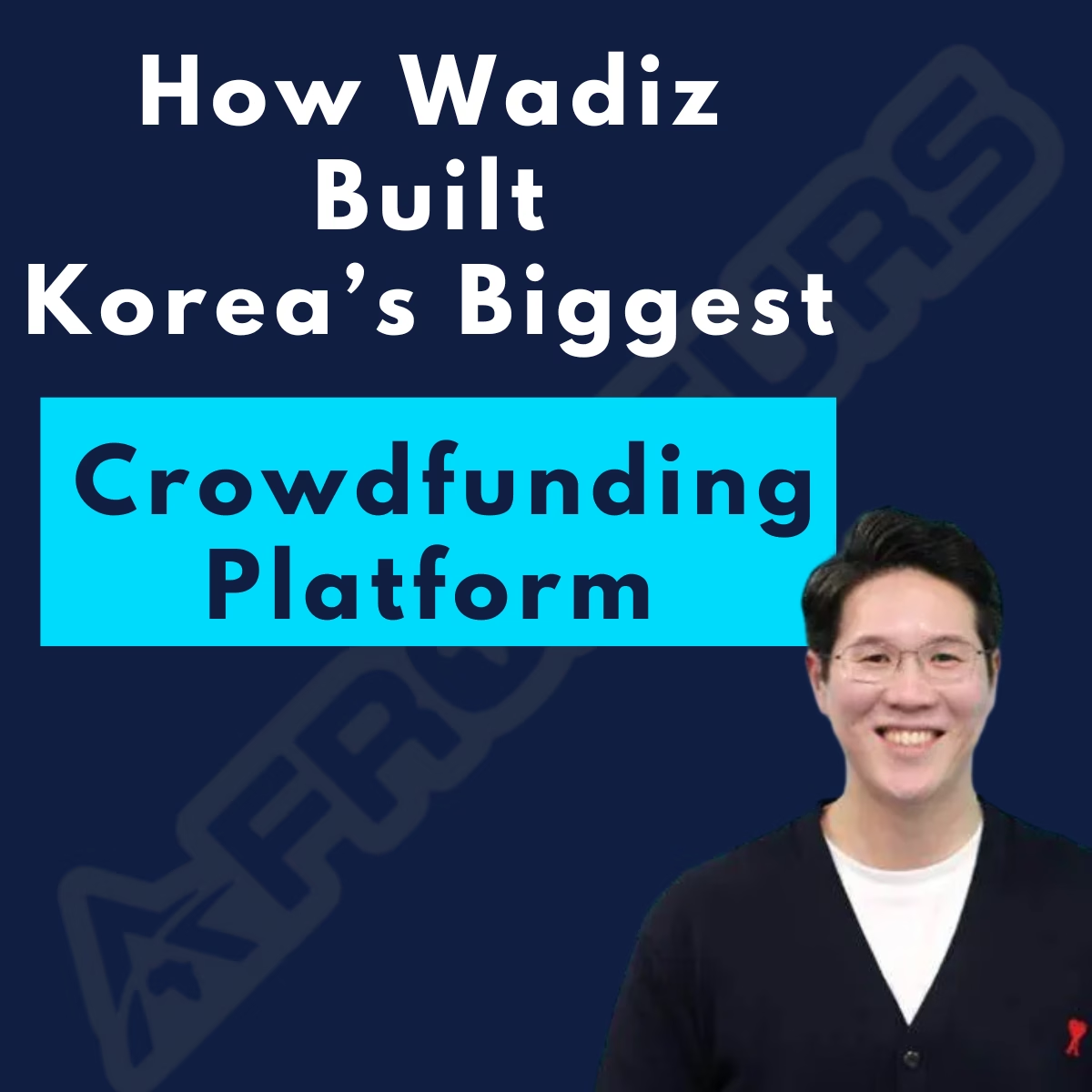Unlock your productivity with Notion! Whether you’re managing projects, creating content, or tracking goals, Notion is the ultimate all-in-one workspace. Here’s the link: Notion

Whenever you meet an entrepreneur around the world there is always an impactful incident that marks their entrepreneurial journey.
Fred Swaniker’s journey is no different.
In 1982 As a young boy, his family fled Ghana during a period of political instability and a military coup.
His family refuged to Gambia to start over a new life in a safer country.
But 12 years after, his family ran away from Gambia as well, because there was a coup d’état in 1994
They finally end up in Zimbabwe where He started going to school.
As you can see Fred’s family like other millions of people in Africa have become victims of bad leadership, especially in the 80’s and 90’s.
The Idea of the African Leadership Academy
From a young age, Fred Swaniker saw the same problems, poverty, conflict, and coup d’etat, repeat themselves across Africa.
It wasn’t just something he read in newspapers, but something he lived in.
As he moved around the continent, he kept asking himself: Why do these issues never seem to go away?
Slowly, he realized they all stemmed from a single root cause: a shortage of visionary, ethical leaders.
That’s when a spark lit up in his mind: What if we invest in talented young people and shape them into the kind of leaders Africa desperately needs?
That spark grew into the idea for the African Leadership Academy (ALA).
A place to find promising teenagers, give them world-class education and train them to tackle Africa’s challenges head-on.
Fred knew that by cultivating ethical leadership early, he could help set a new course for the entire continent.
He saw that these future leaders would eventually transform not just their own lives, but their communities and, ultimately, Africa itself.
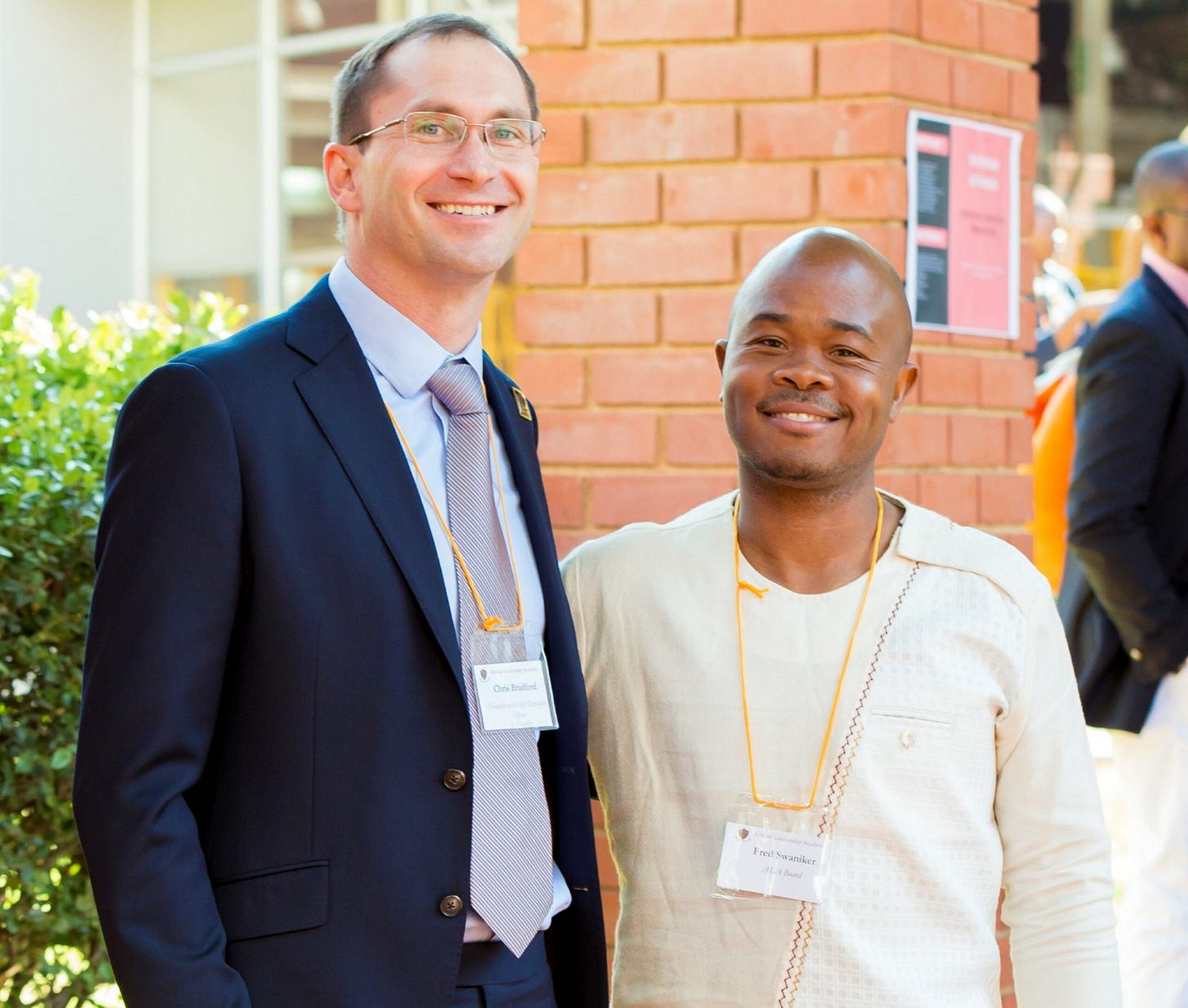
How he and his Co-Founder Chris Bradford Build The Academy
Fred Swaniker and Chris Bradford founded the African Leadership Academy (ALA) in South Africa.
They launched the academy in 2004, but it took them four years to welcome the first 97 students in 2008 at its campus in Johannesburg, South Africa.
ALA started as a boarding school in Johannesburg.
Offering a two-year pre-university program focused on leadership, entrepreneurship, and African studies, alongside traditional academic subjects.
Their First Customers
ALA received initial funding from some of the largest foundation organizations.
With this support, they traveled across Africa with the team, to identify the most talented students.
- Recruitment involved school visits, partnerships with educators, and outreach programs across the continent.
- Parents and guardians, as indirect customers, were convinced of ALA’s long-term vision to develop future African leaders.
These were the main direct and indirect customers, the students were carefully selected based on their leadership potential, academic excellence, and entrepreneurial spirit.
Customer profile of the students
Students were required to possess specific characteristics and talents, including leadership skills, strong academic performance, and an entrepreneurial mindset.
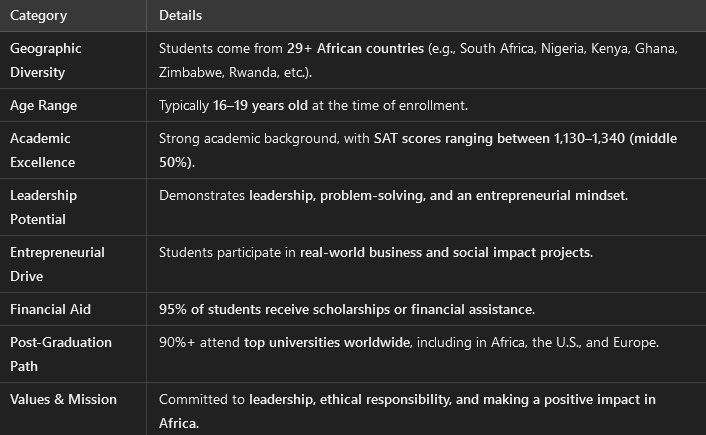
How they reached the students
Partnering with schools and educators to build the program has been essential in recruiting high-potential students.
- Educators played a key role in spreading awareness about ALA’s mission, ensuring that talented young leaders from diverse backgrounds had access to this opportunity.
- Word-of-mouth referrals and the institution’s mission-driven appeal played a crucial role in attracting students.
The program has been instrumental in identifying the best students from various countries.
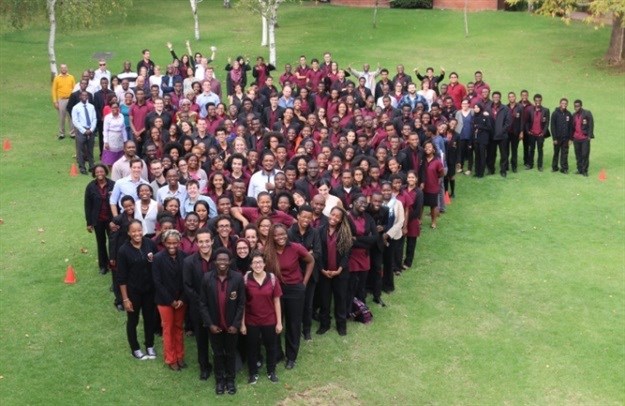
How they made the money
The majority of students around 95%, receive scholarships to support their education at ALA.
Some students are awarded full scholarships, while others receive partial scholarships based on financial need.
Those who pay full tuition are typically from families who can afford it.
As an NGO, ALA has adopted a hybrid revenue model, combining:
- Tuition Fees: Paid by students who could afford the program.
- Scholarships & Grants: Supported by organizations like The MasterCard Foundation and Omidyar Network.
- Philanthropic Donations: From high-net-worth individuals and global investors.
These financial streams ensured that talented students, regardless of their economic background, could access quality education.
While we don’t know how much they were making at the beginning, it’s estimated that they make around 5 to 7 million dollars. I’ll show it at the end.

The Growth Phase
In order to scale, hotels, schools, and restaurants they have to expand to new locations or launch new products. expansion is one way to grow.
But before gaining momentum, it is crucial to solidify what you have built, ensuring that the process runs smoothly and efficiently:
- A structured admissions process: The growing internet access in Africa, has simplified and strengthened recruitment efforts for high-potential students across the continent.
- Curriculum: Integrated project-based learning, and African studies, creating a distinctive education model.
- Corporate & University Partnerships – Partnered with global companies and universities to provide internships, job placements, and scholarships for graduates.
Scaling: Expand Beyond ALA
With ALA’s success, Swaniker launched
- African Leadership University (ALU) in 2015 to scale leadership education across Africa.
- ALU opened campuses in Mauritius and Rwanda, offering higher education with an entrepreneurial and leadership focus.
- African Leadership X (ALX) was launched to train young professionals in digital and tech skills, catering to Africa’s workforce demands.
Becoming a Recognized Brand
At this point, ALA was no longer just a school—it had become synonymous with African leadership and academic innovation.
- Social Media & Digital Presence: ALA leverages LinkedIn, Instagram, and YouTube to showcase its impact and reach a wider audience.
- Alumni Success: ALA graduates have secured roles in top companies, founded startups, and contributed to policy changes across Africa.
Fred Swaniker’s Influence: The biggest contributor to ALA’s brand building has been Fred Swaniker, whose speeches and media presence have elevated ALA’s global recognition.
Fred’s Personal Brand
Swaniker has built a strong personal brand, driven by his purposeful mission to educate Africa’s future leaders. His growing influence has given him significant exposure across various platforms.
- Speeches: Swaniker’s talks on TED, CNN, and Forbes have elevated ALA’s global recognition, helping to attract funding from major companies and institutions.
- Podcasts & Traditional Media: A simple search of his name reveals numerous interviews and features, highlighting his impact and thought leadership.
- Social Media Presence: Fred has an engaged audience of nearly 100K followers on LinkedIn and Twitter (X), further amplifying ALA’s mission.
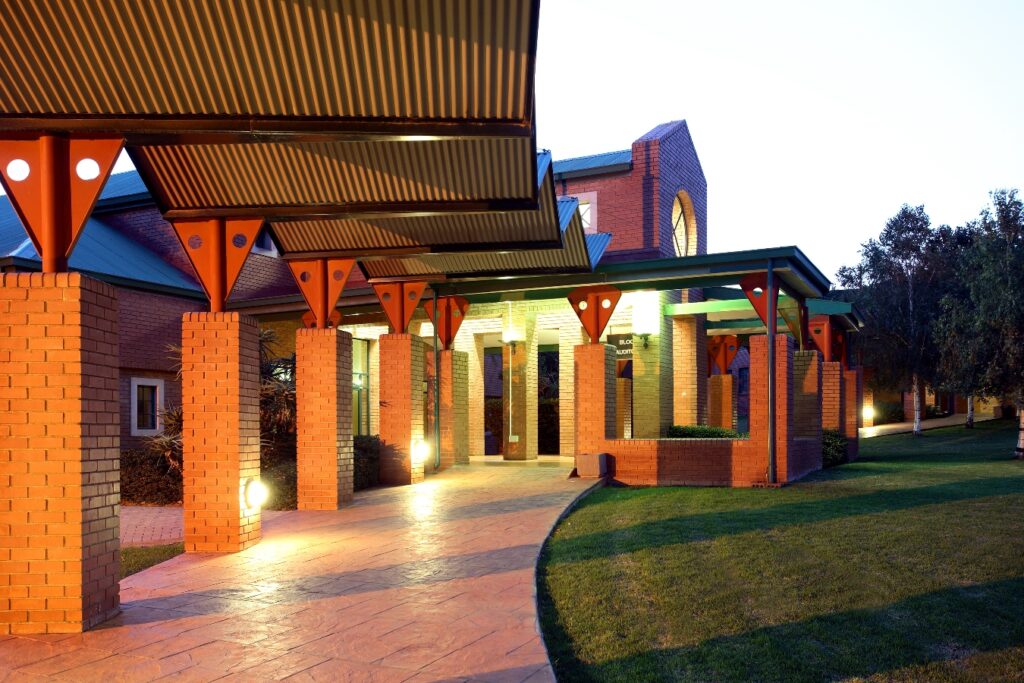
Expansion of the Organization
Through his strong brand and leadership, Swaniker has successfully expanded ALA’s impact, launching ALU (African Leadership University) and ALX to scale leadership and skills development across Africa.
With its growing influence, ALA is continuously expanding:
- New Educational Models: Online programs, bootcamps, and virtual leadership summits.
- Stronger Corporate Alliances: Deeper partnerships with global institutions to enhance job placement for graduates.
- Government Collaborations: Working with African governments to integrate ALA’s leadership model into national education policies.
ALA has some online initiatives and outreach programs that allow students across Africa to engage with its curriculum remotely. These include:
- The Anzisha Prize: An online entrepreneurship program for young African entrepreneurs.
- ALA’s Network and Online Resources: Alumni and leadership development programs are available virtually.
Revenue Growth
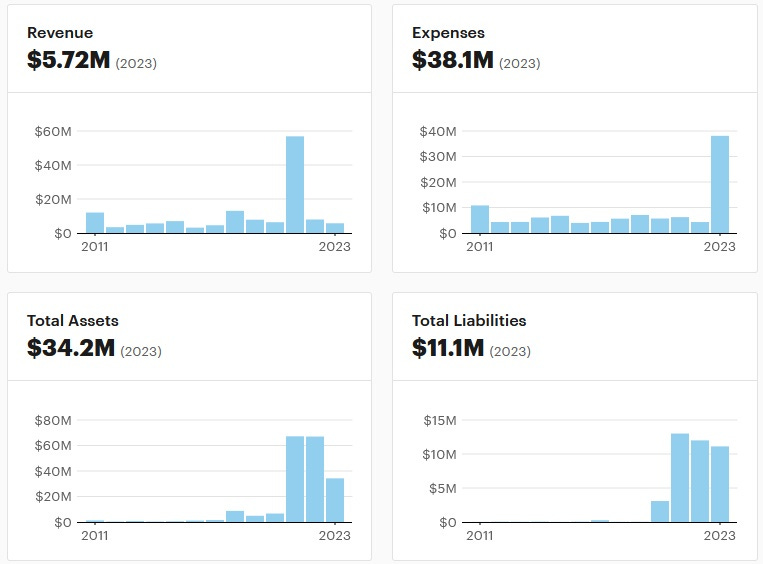
African Leadership Foundation (ALF) is a U.S.-based nonprofit that supports ALA.It provides fundraising, scholarships, and resources to help students attend ALA.
- In 2011, their revenue was $12 million.
- In 2022, it dropped to $7.9 million.
- In 2023, it further declined to $5.7 million.
- However, in 2021, they received an exceptional amount of $56.9 million.
As you can see, the donation amounts fluctuate based on their needs and the state of the global economy. Despite this, ALG remains one of the most successful NGOs and a multimillion-dollar organization.
Thank you, that’s all for today!
See you next time, and have a happy week!

